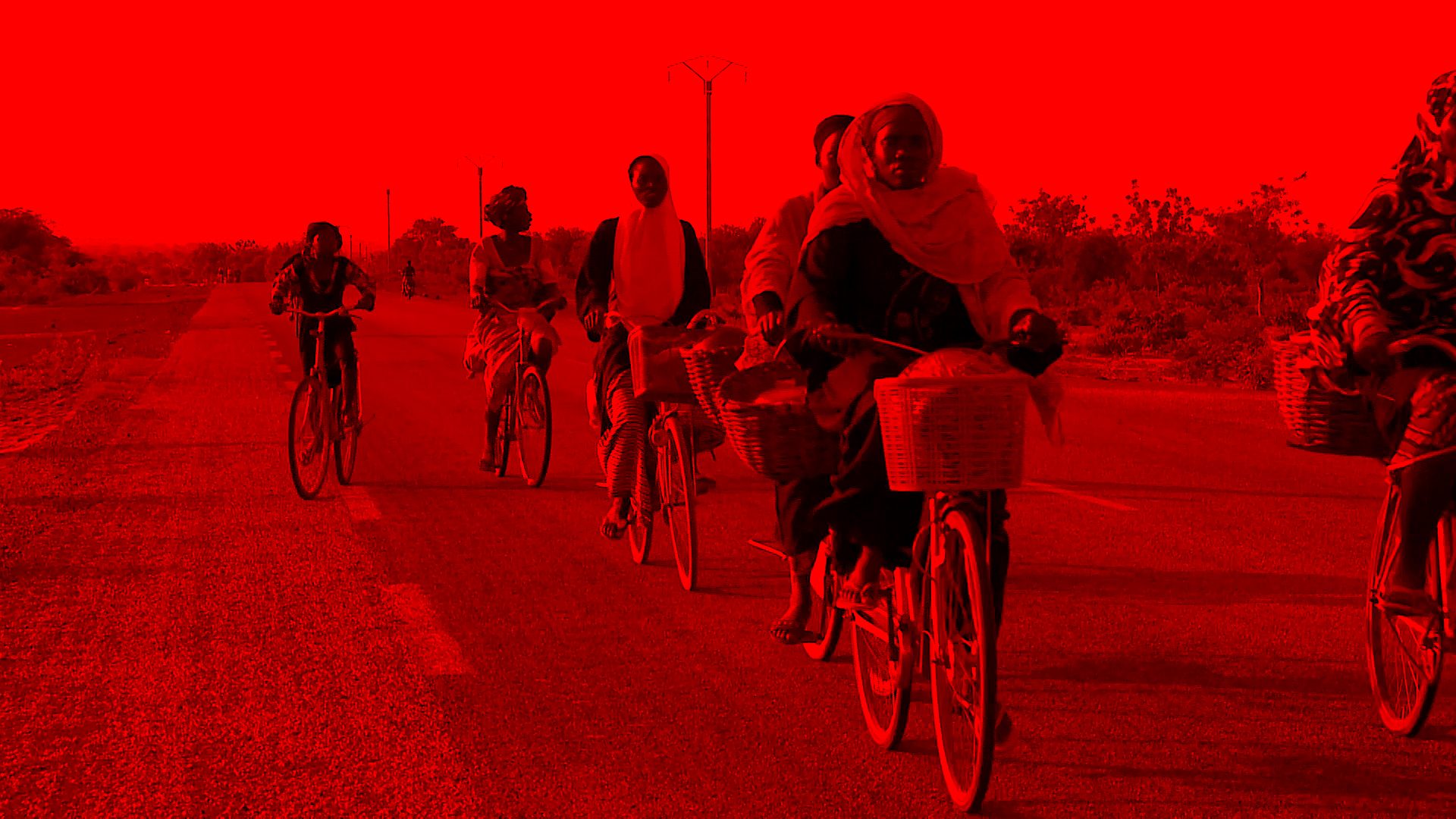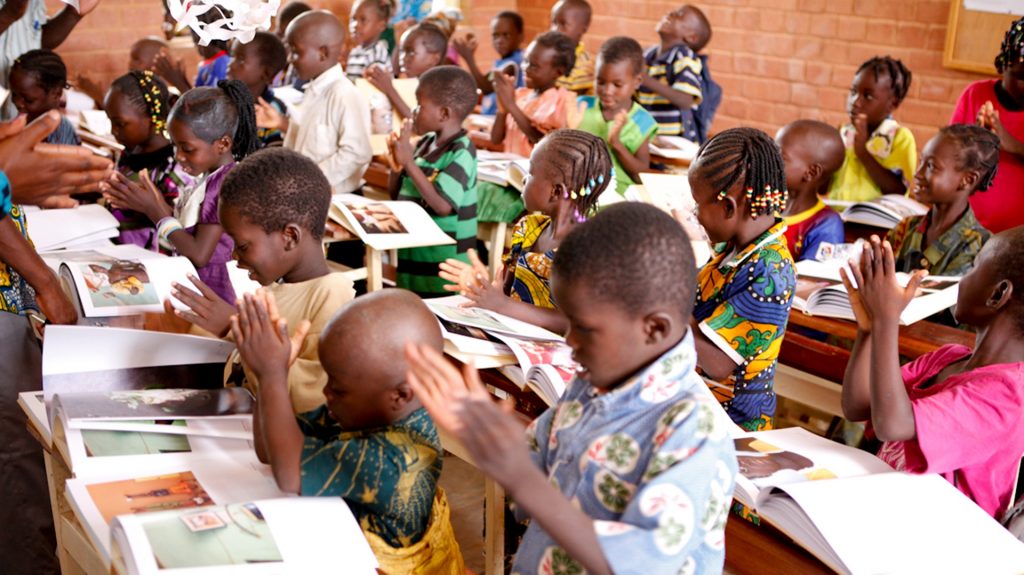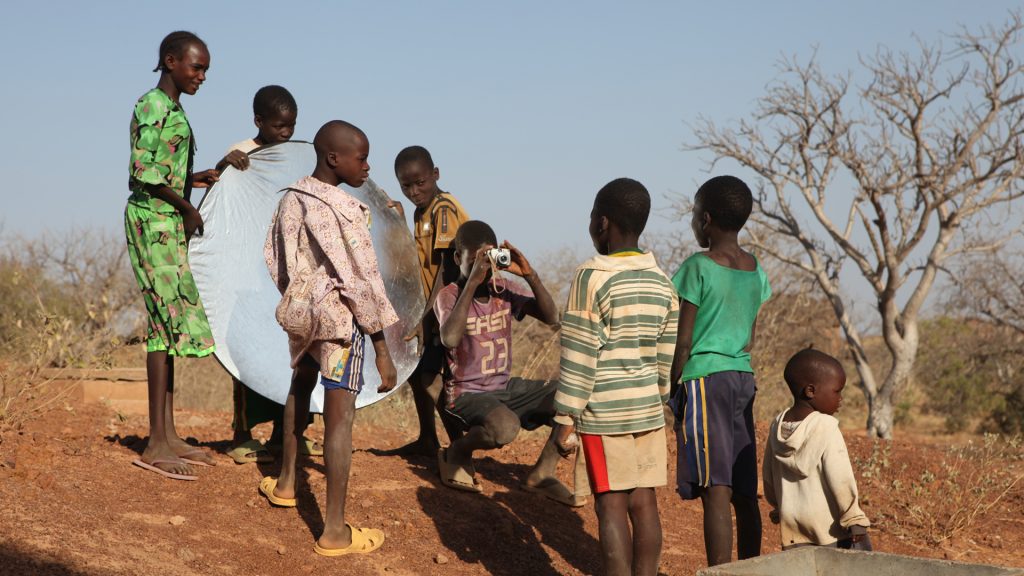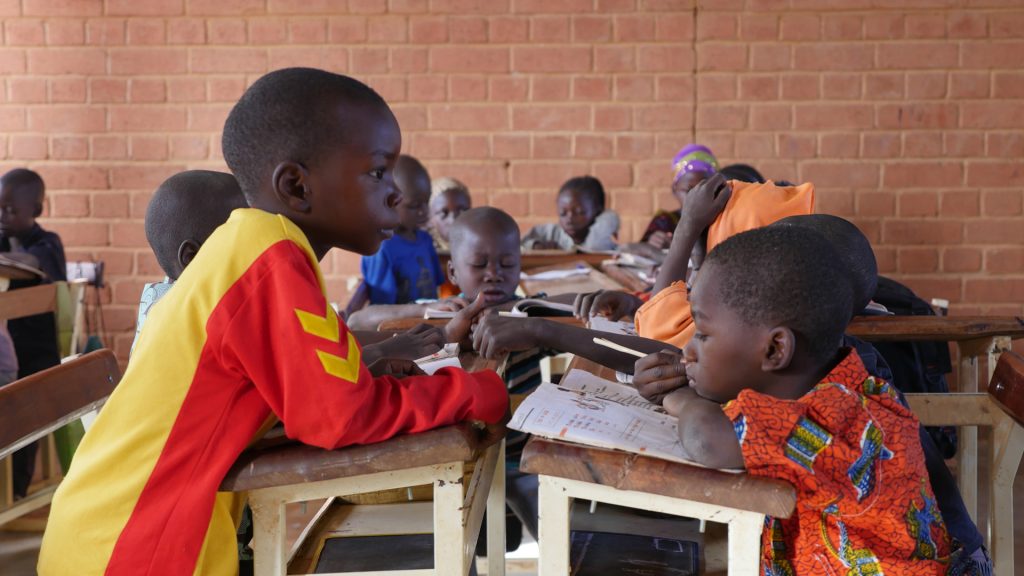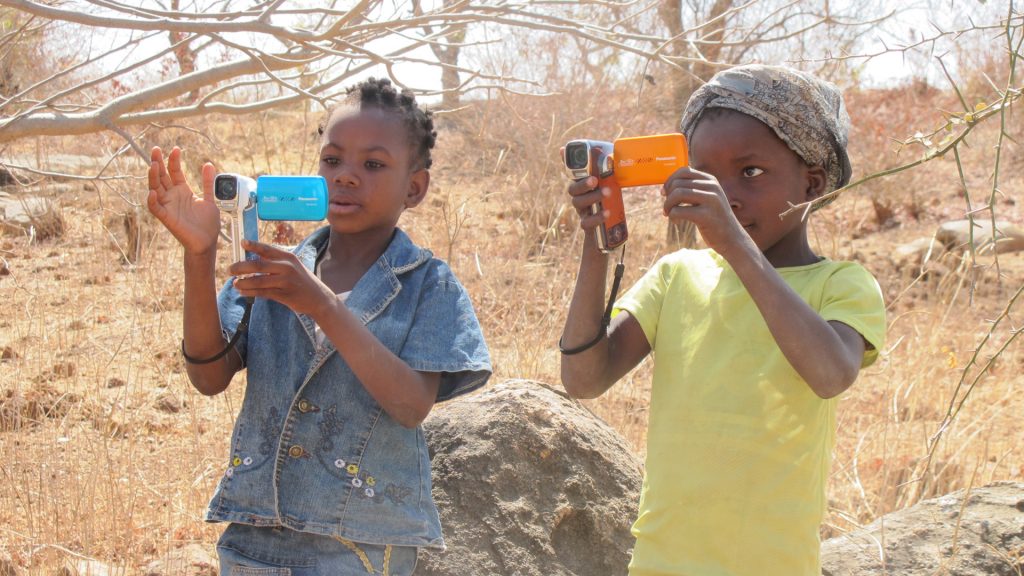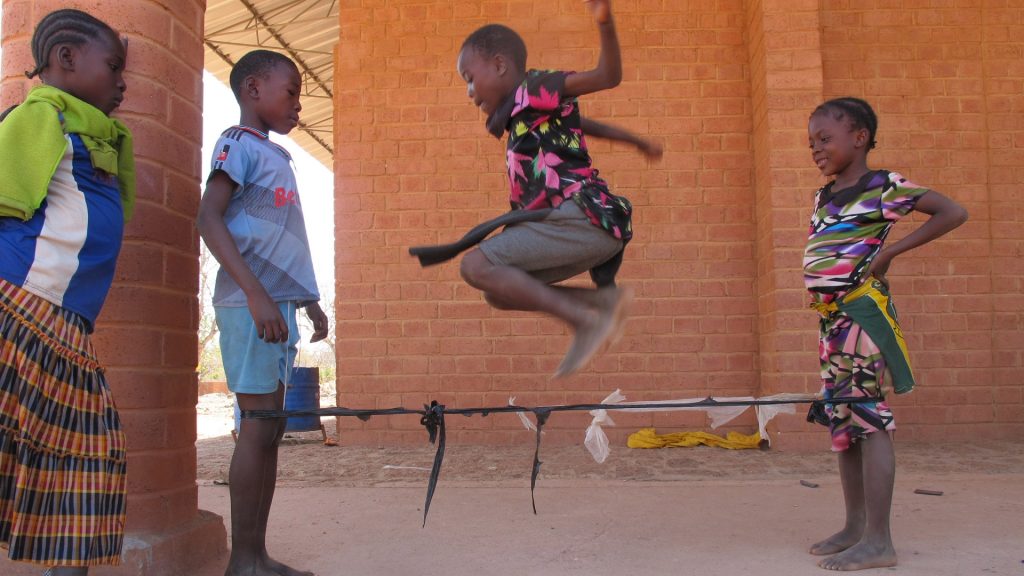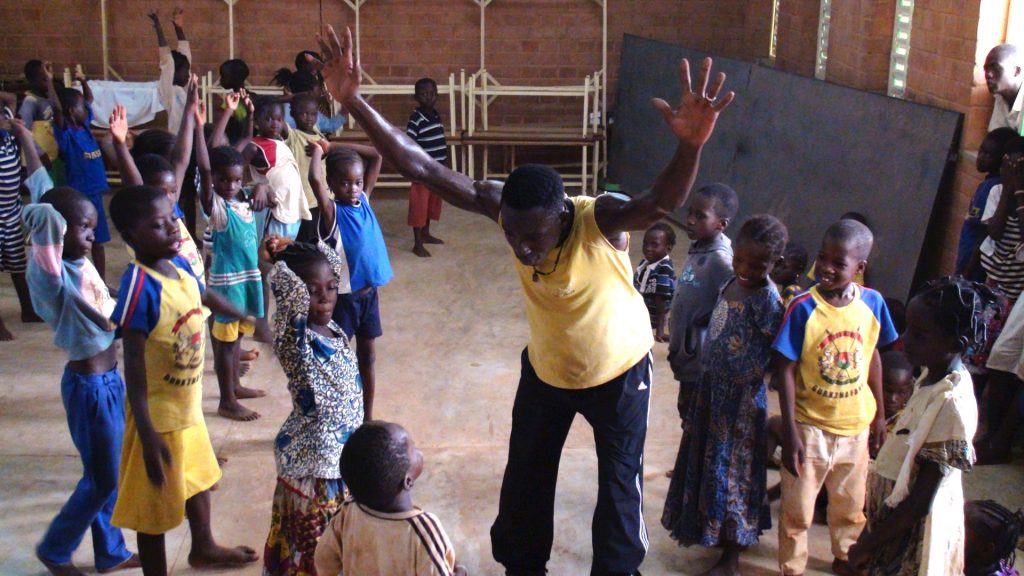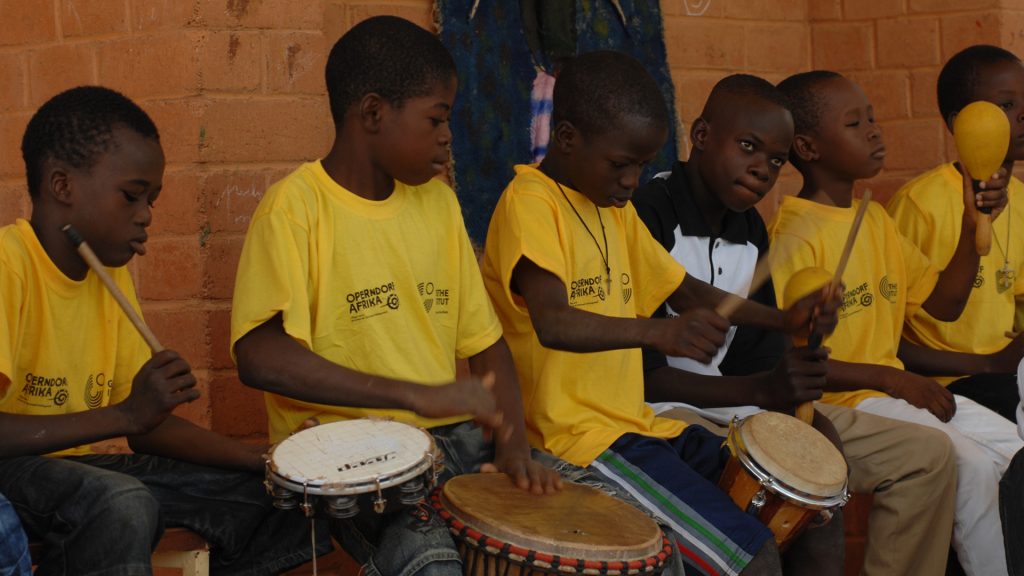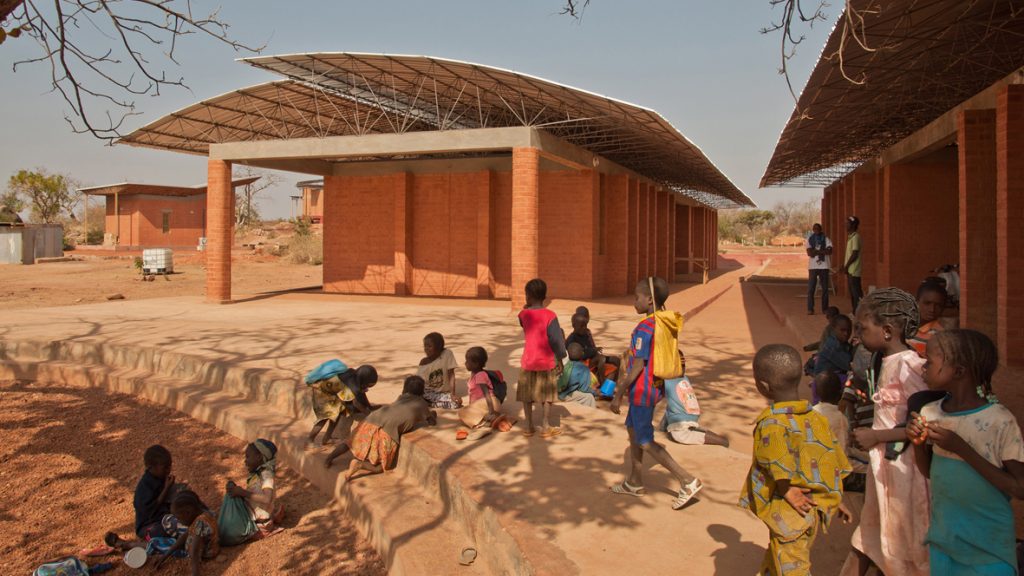FOCUS EDUCATION
Focus Education

The educational program
of the Operndorf Afrika
primary school
In October 2011, the first project building block of Opera Village Africa, a primary school with an attached canteen was opened. In addition to the classrooms, the school is equipped with a recording studio, a film screening room, teacher residential houses and offices. The school has a maximum capacity of six classrooms with a total of 300 children. The teachers at the Opera Village School are in public service and are financed by the Ministry of Education of Burkina Faso – this is an important aspect for ensuring the sustainability of the project.

The starting
situation
The universal primary school system in Burkina Faso provides little room for creativity. Traditional frontal teaching is exercised in the primary schools in Burkina Faso, with an average class size of 94 children and the proportion of girls in less than 20 percent. Typical country schools in Burkina Faso are concrete buildings with corrugated tin roofs – a combination that quickly provides for a room temperature over 30 degrees.

the richness of such a place. We are beginning with the school. It should
constitute a centre. It is indeed an art, when children and youth who
can not attend a class, are able to profit from.”

The focus of the
Opera Village School concept
It is of high importance to us to provide comfortable cool rooms, this is done through the means of a specially designed passive ventilation system, in the architecture of the Opera Village School. The school at Opera Village is state-approved and all children in the vicinity have free access. The class sizes do not exceed the number of 50 children to allow for concentrated work.
A reform effort of the project is to increase the proportion of girls in the school. This is done through the inclusion of the mothers in the structural procedures of the daily school life, for example, through the management of the canteen, and is supplemented by literacy classes for parents. This should thereby increase, the basic understanding of the importance of education, among the local general public. The school in contrast to all other primary schools in Burkina Faso enrols 50 percent girls, since its opening in 2011!

The artistic focus
The Opera Village School concept pursues its artistic focus. In addition to the traditional subjects, the cinematic, musical and performing creativity of the children is also encouraged. A film screening room is available for this purpose, which is also used for music and movement workshops. There are also extra vocational opportunities offered by the state curriculum in the form of regular workshops, for artists from Burkina Faso, studio visits and firm collaborations with film academies and dance studios. This offer, which is also realised in cooperation with the Goethe Institute and several local cultural institutions, is geared to school children and to the youth in the vicinity.
The Ministry of Education of Burkina Faso emphasises the model character of the school model and discusses the model within the framework of a planned educational reform. The model of the school has also drawn the attention of the UNESCO, which documents its success, in figures, in two studies: With a school dropout rate of less than 1 percent and significantly less absenteeism than in all other schools in the country – this means that the results of the Opera Village School are well above the national average.




